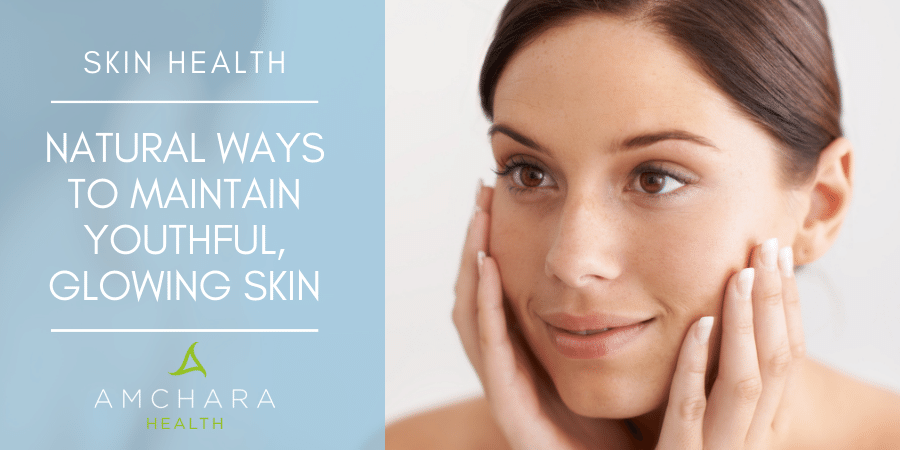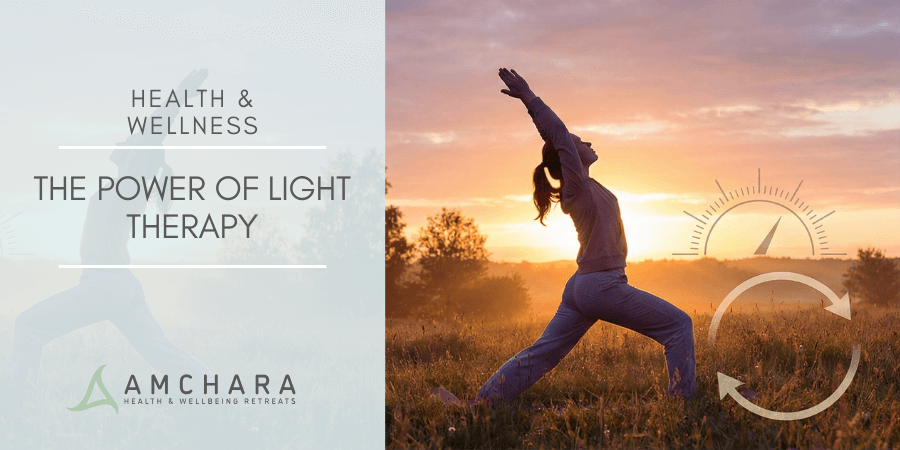Topics Covered in this article:
Your skin is the largest organ in your body, as well as the primary line of defence, and plays a vital role in the protection and detoxification of the body. Needless to say, this widespread and effective protection can only be carried out to the best of its ability when your skin’s health is at an optimum.
Unhealthy or damaged skin can significantly impair your body’s ability to protect against diseases and other harmful microorganisms, as well as reducing how effectively it can remove toxins and water from the body.
In this article, we will take a closer look at your skin and what you can do to naturally boost your skin’s health through various methods and supplements.
Our articles are always evidence-based, and orientated towards a holistic and Personalised Health approach; we aim to provide you with actionable knowledge and tips to help you on your journey to optimal health.
Eat a healthy and balanced diet
There are many vitamins and minerals with proven benefits for skin health, many of which can be found in everyday whole foods, especially in certain fruits and vegetables which are high in polyphenols, such as tomatoes and mangoes.
A selection of beneficial foods for skin health to eat frequently are explained below.
Tomatoes
Tomatoes have been clinically proven to be beneficial in the prevention of skin cancer and other skin-related diseases. This is thought to be due to their high concentrations of the polyphenol lycopene, responsible for their red colour, which plays a role in protecting the skin from UV damage.
One study in mice showed a 50% lower chance of skin tumours after exposure to UV radiation with a daily tomato consumption, while another demonstrated that people who incorporated 40 grams of tomato paste into their meals each day had 40% less sunburn than a control group.
Mangoes
Research has shown that mangoes have a rich concentration of different vitamins and antioxidants, including vital Vitamins A, C, and E, as well as polyphenols and carotenoids, a significant percentage of these being found in the mango skin. The antioxidant compounds are especially important in maintaining essential structural components of the skin, such as collagen, which ensures the skin’s strength and rigidity.
Green Tea
Green tea contains high volumes of polyphenols, and as a result, it has been tied to the treatment of, and reduction in frequency of various skin diseases, including dandruff, which is characterised by dead, flaking skin usually as a result of overproduction of skin cells.
Studies have shown that green tea slows down this production, thus reducing the chances of dandruff. The polyphenols within it can additionally help rejuvenate dying skin cells, allowing it to be potentially beneficial in the healing of wounds or some skin conditions.
Omega-3
Omega-3 is a nutrient found in certain oily foods including nuts, notably walnuts and hazelnuts and seeds such as flaxseeds and pumpkin seeds, as well as oily fish. Omega-3 is thought to naturally moisturise the skin, while simultaneously fighting red and itchy skin, which can be a symptom of conditions such as psoriasis. It does this by improving the skin’s ability to act as a barrier, thus sealing in moisture and keeping out known skin irritants.
Reduce smoking and alcohol consumption
Smoking has been shown to have an impact on skin in various parts of the body, but especially on facial skin, where it has been evidenced to narrow blood vessels close to the skin’s surface, thus reducing the flow of vital nutrients to these parts and having an ageing effect as the skin’s health gradually deteriorates.
Additionally, smoking has been demonstrated to result in the breakdown and reduction in production of compounds such as collagen and elastin, which give the skin its strength and elasticity. This causes the skin to lose these properties, particularly with a high intensity of smoking.
As well as this, alcohol intake has been linked through various studies to a greater risk of developing non-melanoma skin cancers. One such study linked alcohol intake specifically to a greater risk of developing both basal cell carcinoma and cutaneous squamous cell carcinoma, which is the second most common form of skin cancer.
For each 10 gram increase in daily alcohol consumption, these researchers showed a 7% increase in basal cell carcinoma risk, and an 11% increase in risk of cutaneous squamous cell carcinoma.
Reduce stress levels
Scientists have demonstrated a clear link between stress levels and the frequency of certain skin issues including patches of itchy, oily, or flaky skin, excess or disrupted sweating and rashes, especially ones on the hands. In one study within students of college age, such skin issues were shown to be of a higher prevalence in those who admitted to high stress levels.
This is hypothesised to be due to an increased presence of sebum during stressful times, which is an oily substance that blocks pores, impacting the skin’s ability to expel sweat and toxins, and resulting in various skin conditions. One proven way to reduce stress levels, and the concentration of sebum, could be to engage in relaxing, meditative practices, such as yoga or tai chi.
Sleep
Adequate amounts of uninterrupted sleep have been shown to be incredibly beneficial for the skin’s health in more ways than one. Skin forms new collagen each night while you are asleep, preventing sagging and helping to constantly renew and repair your skin. This results in a greater elasticity of the skin and a lower likelihood of wrinkles.
A study showed that the number of hours of sleep can have a directly proportional effect on the amount of collagen produced, and thus the number of wrinkles formed on the skin. For example, only getting 5 hours of sleep a night can lead to twice as many fine lines as sleeping 7 hours. Experts say that it also leaves skin significantly drier, which can result in lines and wrinkles becoming more visible.
As well as this, blood flow to the skin is boosted while sleeping, providing it with a higher concentration of minerals and nutrients to keep its cells in healthy condition. Sleep deprivation can reduce this rate of blood flow, causing more skin cells to grow unhealthy, which can lead to a dullness of the skin, as well as a significantly impacted overall level of skin health.
Takeaway
Many factors, including both internal and external, can have important effects on the health and appearance of your skin, including dietary and lifestyle factors, as well as factors such as stress levels.
Despite the efforts of many marketing campaigns, it is not essential to purchase large volumes of skincare products and creams in an attempt to improve the health of your skin. Instead, just following simple, natural steps to make positive changes in your eating habits and lifestyle can have a great impact on your skin health holistically, as well as bringing many additional benefits.
To kickstart your health journey, and improve your overall health, why not come to Amchara for a relaxing health retreat?
Investing in a detox health retreat is a great way to kickstart your health journey, boosting your overall health. Our Personalised Health approach will help you, by taking into account your individual health status, needs and goals, and tailoring an approach accordingly to maximise the health benefits for you. Our mission is to help you ‘Change for Good’,
Or if it’s difficult to find time to get away, try Amchara Juicery – cold-pressed, nutritious juices delivered to your door to help you boost your health, naturally. Created by Amchara’s expert in-house health team, you can enjoy a range of fresh, organic juice cleanses (and super soups) at home.
Related articles you might be interested in:
- Natural skin protection
- The importance of your skin microbiome
- 6 simple tips to get glowing skin
- Top vitamins and nutrients for healthy skin




